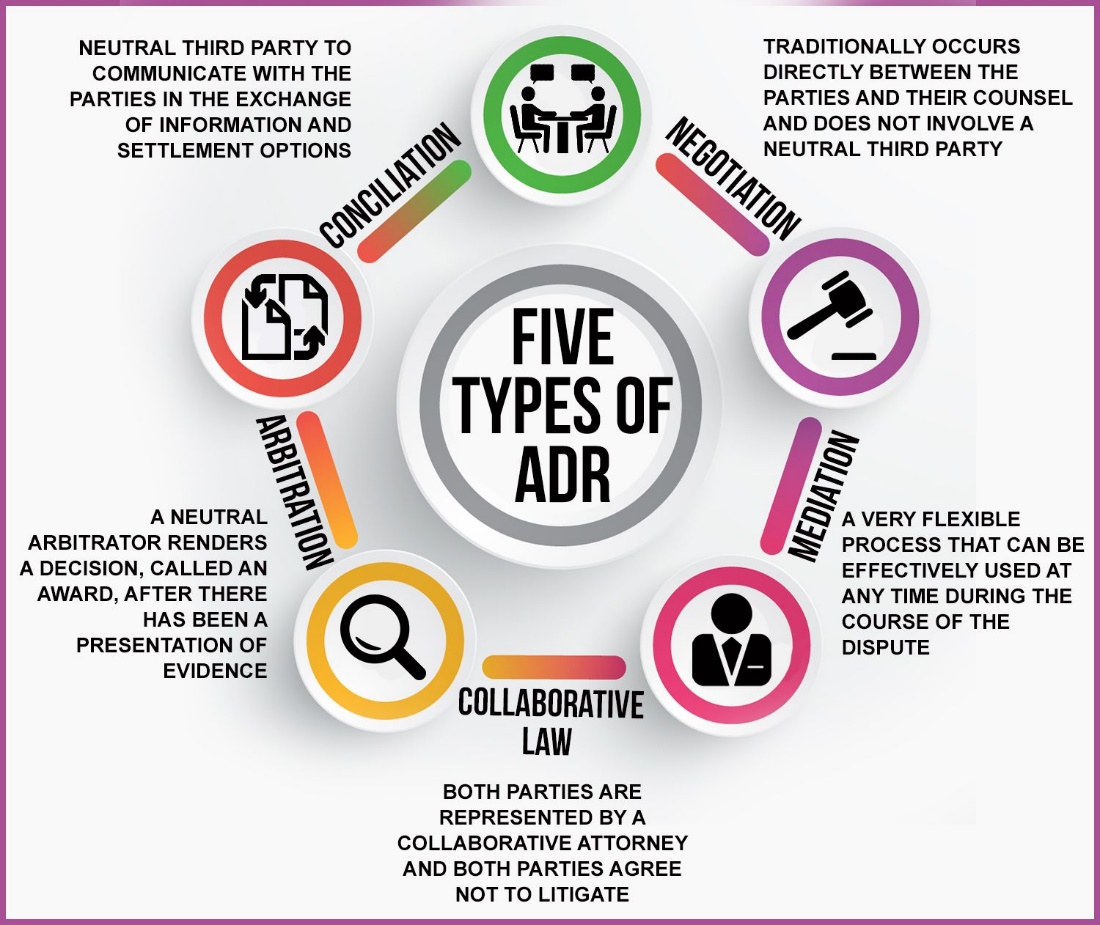Governance
Parliamentary Standing Committee Report on Mediation Bill, 2021
- 14 Jul 2022
- 6 min read
For Prelims: Mediation Bill, Standing Committee, Mediation Council
For Mains: Significance of new Mediation Bill, Dispute Redressal Mechanisms, Government Policies & Interventions
Why in News?
Recently, Parliamentary Standing Committee on Law and Justice has recommended substantial changes to the Mediation Bill, 2021.
- The bill was introduced in Rajya Sabha in December, 2021, with an aim to reduce the pendency of cases in courts.
- As soon as the bill was introduced in the Rajya Sabha, the Chairman of the Rajya Sabha referred it for examination.
What are the Issues Highlighted by the Panel?
- Pre-Litigation:
- The panel highlighted many key issues including mandatory and coercive nature of pre-litigation mediation.
- Making pre-litigation mediation necessary may result in case delays and provide another instrument in the hands of truant litigants to prolong case disposition.
- Clause 26:
- The panel was against clause 26th clause of the draft which gives power to the supreme court or the High court to make laws of pre-litigation according to them.
- Non-Applicability to Non-Commercial Disputes:
- The members questioned the non-applicability of the provisions of the Bill to disputes/matters of non-commercial nature involving the Government and its agencies.
- Appointments:
- The panel had discussions also about the qualifications and appointment of the Chairperson and Members of the proposed Mediation Council.
What are the Recommendations?
- Pre-Litigation:
- It recommended to make pre-litigation mediation optional and further introduced it in a phased manner instead of introducing it with immediate effect for all civil and commercial disputes.
- While implementing pre-litigation mediation under the Commercial Courts Act, 2015, should be studied before mandating it across other case categories.
- Appointment of chairperson:
- The panel recommended that the Central Government can appoint the Chairperson and Members of the Mediation Council of India through a selection committee.
- In the bill it was given that people dealing with problems related to 'Alternative Dispute Resolution' can become members and chairman of the council if they show 'capacity' and 'knowledge and experience' in mediation.
- The panel recommended that the Central Government can appoint the Chairperson and Members of the Mediation Council of India through a selection committee.
- Establishment of Mediation Council in Each State:
- Given the vast range of duties and obligations allocated to the Mediation Council of India, mediation councils should be established in each state.
- These State Mediation Councils should operate under the general supervision, direction, and control of the Mediation Council of India and perform such functions as it may specify.
- Unique Registration Number:
- The Mediation Council should issue each mediator with a unique registration number, and those provisions be made in the bill to allow the Mediation Council to continuously evaluate the mediator by holding training sessions on a regular basis and that the mediator earns a minimum number of credit points on a yearly basis in order to be eligible to conduct mediation.
- Instead of multiple bodies registering mediators, the proposed Mediation Council of India should be made the nodal authority for the registration and accreditation of mediators.
- Reducing Time Limit:
- The panel recommended reducing the time limit from180 days to 90 days and further an extension period of 60 days instead of 180 days.
- Reframing Definition:
- They also recommended reframing the new definition of mediation and do not put it separately under clause 4 as it is already given in clause 3.
What are the Highlights of the Mediation Bill, 2021?
- The objective of the bill is to settle any civil or commercial disputes through mediation before seeking court or tribunal’s intervention.
- After two mediation sessions, a side may withdraw from mediation.
- The mediation procedure must be completed within 180 days, which the parties may extend by another 180 days.
- The India Mediation Council will be established to regulate the whole process.
- Its tasks include registering mediators and recognising mediation service providers and mediation institutes.
- Further, the agreements resulting from mediation will be binding and enforceable in the same manner as court judgments.
What is Mediation?
- Mediation is a voluntary, binding process in which an impartial and neutral mediator facilitates disputing parties in reaching a settlement.
- A mediator does not impose a solution but creates a conducive environment in which disputing parties can resolve all their disputes.
- Mediation is a tried and tested alternative method of dispute resolution. It has proved to be a great success in the cities of Delhi, Ranchi, Jamshedpur, Nagpur, Chandigarh and Aurangabad.
- Mediation is a structured process where a neutral person uses specialised communication and negotiation techniques. Litigants participating in the mediation process have unequivocally endorsed it.
- Other than mediation there are some other dispute resolution methods such as Arbitration, Negotiation and Conciliation.
- Mediation is a type of Alternative Dispute Resolution because they offer an alternative to litigation.
- ADR proceedings can be initiated by the parties or mandated by legislation, the courts, or contractual provisions.







